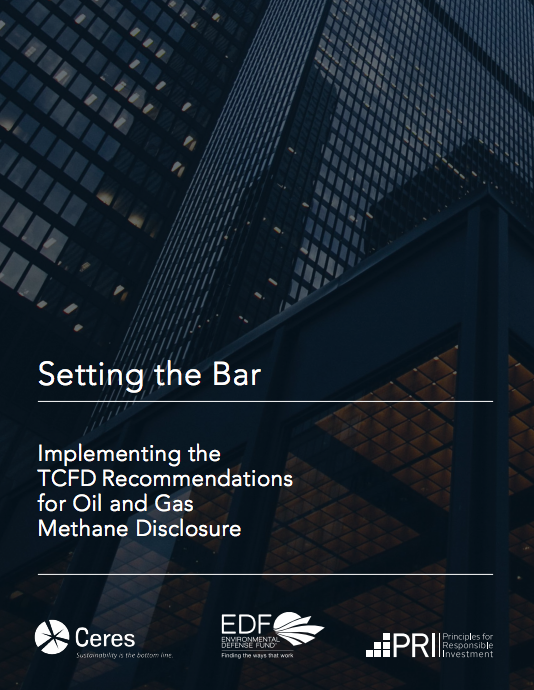Chemycal has been acquired by 3E
Learn MoreChemycal has been acquired by 3E
Learn MoreDiscover how Chemycal PRO helps you boosting your regulatory monitoring:

Just last month 13 of the world’s largest oil and gas majors—including ExxonMobil, BP and Shell —came together for a new commitment to reducing a key super pollutant. Methane, the primary component of natural gas, is the second leading contributor to climate change and over 80 times more potent than carbon when leaked into the atmosphere in the short-term. What’s more surprising? The coalition’s new methane target proceeded despite an uncertain regulatory landscape in the U.S.
One of 76 recent environmental rollbacks, the Trump administration’s latest move toward undoing common-sense methane regulations is expected by the EPA’s own estimates to allow an additional 480,000 tons of methane emissions. Yet behind the scenes, pressure on industry to transparently reduce emissions is coming from an unexpected source: investors. Investors understand the material risk methane poses their portfolios and have been urging companies to act. Given the lack of current national policy leadership in the U.S., investor pressure on industry to manage climate risks like methane will likely only increase.
But investor decision-making around climate issues like methane can only be as good as the information they receive from companies. Mark Carney and Michael Bloomberg, with the support of the Financial Stability Board, set out to tackle this problem. They formed the Task Force on Climate-related Financial Disclosures (TCFD) in 2015 and worked with industry, auditors and investors to write recommendations for consistent and comparable climate-related financial reporting. These recommendations are now supported by over 500 organizations, including mainstream investors like BlackRock and Legal & General, along with major oil and gas companies like BHP, Equinor, Eni, Shell, Suncor and Total.
However, the TCFD recommendations provide only high-level guidance for climate-related reporting for all sectors, meaning details for industry-specific implementation remain a challenge.
Methane is uniquely both a product and pollutant, which means these emissions represent a material risk as well as an opportunity for the oil and gas industry. Investors have found current methane reporting inadequate compared to its importance in determining the role gas can play in a low-carbon future. The inconsistency and inaccessibility of information leaves concerned investors in the dark about industry’s plan to manage a major climate risk. Adoption of the TCFD reporting principles in the oil and gas industry is essential for the planet and smart business.
CONTINUE READING ON business.edf.org
2013 © MyChemicalMonitoring. ALL Rights Reserved. About Us | Terms and Conditions